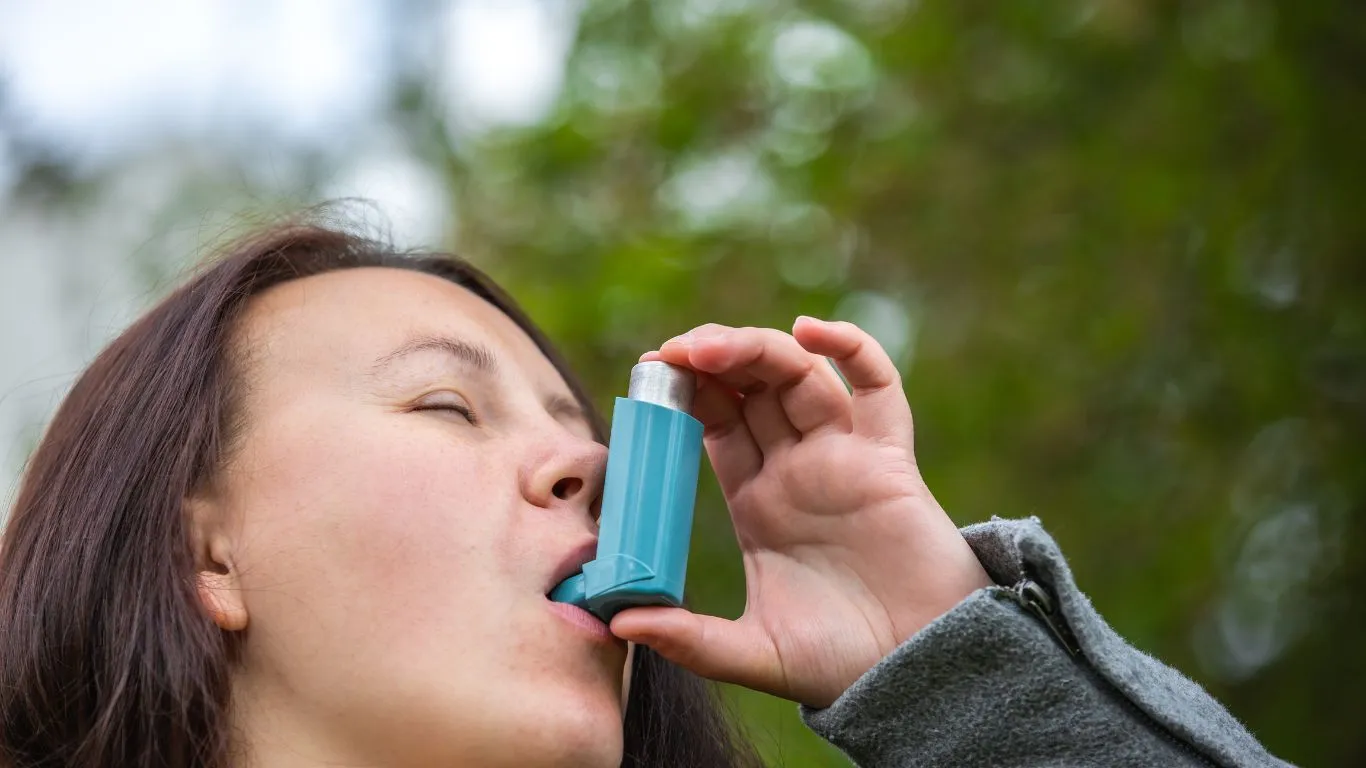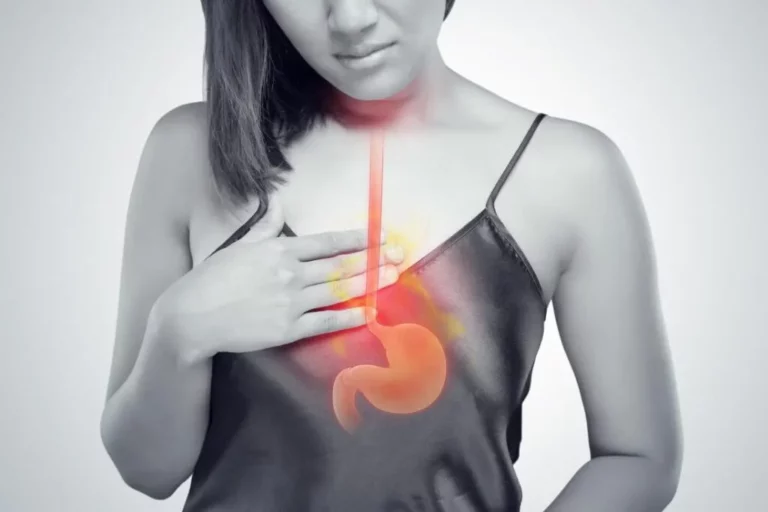Can Cold Drinks Trigger Asthma Symptoms? Find Out Now!
As a Pulmonary Nurse, I’ve had the privilege of working closely with individuals who live with asthma, a chronic condition that affects the airways and makes breathing difficult. One of the common questions I often get asked by patients and their families is whether cold drinks can trigger asthma symptoms. It’s an intriguing topic, as many people wonder if something as simple as enjoying a cold beverage could affect their breathing. In this article, we’ll dive into the science behind this question and share personal insights that could help you understand this connection a bit better.
Can Cold Drinks Trigger Asthma Symptoms?
It’s not uncommon for people with asthma to experience flare-ups or symptoms that seem to come out of nowhere. In some cases, these flare-ups are triggered by external factors like allergens or changes in weather, but could something as innocent as a cold drink be a culprit? The short answer is, yes, cold drinks can potentially trigger asthma symptoms for some individuals. But, as with most things related to asthma, it varies from person to person.
The Science Behind Cold Drinks and Asthma
To understand why cold drinks might trigger asthma symptoms, it’s essential to first look at how asthma works. Asthma causes the airways to become inflamed and narrowed, making it difficult to breathe. When an individual with asthma encounters a trigger, such as cold air or an irritant, their airways can tighten further, leading to coughing, wheezing, shortness of breath, and chest tightness.
Cold drinks, especially those that are ice-cold or carbonated, can act as triggers in some individuals. The theory is that consuming something cold can cause the airways to constrict, leading to a temporary asthma flare-up. This constriction of the airways is often referred to as “cold-induced bronchoconstriction.” Essentially, the cold temperature may irritate the airways, causing them to become more sensitive and reactive.
What Does Research Say?
There has been some research on the relationship between cold drinks and asthma, though it’s not as extensive as studies on other asthma triggers like allergens or air pollution. However, what we do know is that the body’s response to cold temperatures can be different for people with asthma. For example, some studies suggest that people who experience cold-induced bronchoconstriction tend to have more severe asthma symptoms in cold weather. This is because the cold air can cause a similar reaction to consuming cold drinks.
Interestingly, the type of cold drink may also play a role in whether it triggers symptoms. Drinks like iced coffee, soda, or sugary beverages can potentially worsen asthma symptoms because the carbonation or added sugar might irritate the digestive system, indirectly affecting the lungs. On the other hand, some individuals might only be sensitive to very cold beverages, while others may not experience any problems with drinking chilled drinks at all.
My Personal Experience: Working with Asthma Patients
In my experience as a Pulmonary Nurse, I’ve seen firsthand how cold drinks can have a varied impact on asthma patients. I remember a particular case of a young woman who would always complain of shortness of breath and coughing after drinking cold water or sodas. She didn’t have any other obvious triggers, and at first, we thought it might just be a coincidence. However, after carefully tracking her symptoms, we found a pattern: the colder the drink, the worse her symptoms became. Once we helped her switch to room temperature beverages, her flare-ups dramatically decreased.
It’s important to remember that not all patients will have the same reaction. For some, the sensation of cold in the throat and airways may trigger a mild cough or wheeze, while for others, it might lead to more serious symptoms, such as a full-blown asthma attack. In either case, the key takeaway is that if you notice a connection between cold drinks and asthma symptoms, it’s worth discussing it with your healthcare provider. You may need to make adjustments to your diet or lifestyle to reduce the likelihood of a flare-up.
Other Factors That Can Aggravate Asthma Symptoms
While cold drinks can certainly be a trigger for some people, it’s important to remember that there are many other common asthma triggers that can contribute to flare-ups. Asthma is a complex condition, and triggers vary widely from person to person. Below are some common factors that can aggravate asthma symptoms:
- Allergens: Pollen, mold, pet dander, and dust mites are all known to trigger asthma symptoms.
- Exercise: Physical activity, especially in cold or dry air, can sometimes cause asthma symptoms to flare.
- Air pollution: Poor air quality, including cigarette smoke and vehicle exhaust, can make breathing more difficult for those with asthma.
- Weather changes: Cold weather, in particular, can lead to increased asthma symptoms for some individuals.
- Strong odors and chemicals: Perfumes, cleaning products, and other chemical fumes can irritate the airways and trigger asthma attacks.

Why Some People are More Sensitive to Cold Drinks
It’s essential to recognize that not everyone with asthma will have the same triggers. The sensitivity to cold drinks or cold air varies based on several factors, including the severity of the asthma, the presence of other respiratory conditions, and even individual lifestyle habits. For instance, people with more severe asthma or a history of exercise-induced asthma may be more likely to experience symptoms from cold beverages.
Additionally, some individuals might have underlying conditions such as allergic rhinitis or sinusitis, which can make them more sensitive to environmental factors, including the temperature of the drinks they consume. If you suspect that cold drinks are contributing to your asthma symptoms, consider paying attention to when your symptoms tend to worsen. Are they more likely to occur after consuming cold drinks, or do they seem to occur more often during colder weather?

How to Manage Cold Drink Triggers
If you find that cold drinks do indeed trigger your asthma symptoms, there are several steps you can take to minimize the risk of flare-ups. Here are a few strategies:
- Switch to room temperature drinks: Try drinking beverages that are at room temperature rather than ice-cold.
- Limit sugary or carbonated drinks: Carbonation and added sugars can irritate the digestive system, which can indirectly affect your breathing.
- Stay hydrated: Drinking plenty of fluids is essential for lung health, but opt for warm or room temperature beverages.
- Monitor your asthma symptoms: Keep track of when your symptoms occur and try to correlate them with your beverage choices to identify triggers.

How to Identify if Cold Drinks Are a Trigger for Your Asthma
Identifying whether cold drinks are a trigger for your asthma can sometimes be tricky, as asthma symptoms may appear due to a variety of factors. However, tracking your symptoms and identifying patterns can help you better understand how your body reacts to different triggers. One of the best ways to figure out if cold drinks are causing flare-ups is by keeping a symptom diary. Here’s how you can approach this process:
Tracking Your Symptoms
Start by recording when your asthma symptoms occur, what you ate or drank before they happened, and the severity of the symptoms. This might sound tedious, but trust me, it’s one of the most effective ways to pinpoint specific triggers. Over time, you’ll start to notice patterns. For example, you might realize that every time you have an iced coffee or a soda, you feel more short of breath or start wheezing. Or, perhaps, it’s only when you drink something ice-cold that your chest tightens. This type of tracking can be a game-changer in understanding your asthma triggers.
Another important thing to note is the timing of your symptoms. Are your flare-ups happening immediately after consuming a cold drink, or do they occur a bit later? Sometimes, symptoms might not show up right away, and it can be easy to overlook the connection. This is where a symptom diary comes in handy—it can help you identify trends that you might otherwise miss.
Why Your Asthma Might React to Cold Drinks
If you’re wondering why cold drinks specifically might trigger asthma, it comes down to the way cold air affects the body. When you drink something very cold, like a slushy or ice-cold soda, your body responds by constricting your airways. This reflex is natural to protect the body from what it perceives as an irritant. However, for individuals with asthma, this constriction can lead to more severe reactions, such as coughing, wheezing, and even difficulty breathing.
One thing I’ve seen in my nursing practice is that people with exercise-induced asthma tend to be more sensitive to cold beverages. The reason? Cold air often exacerbates exercise-induced asthma symptoms, and consuming a cold drink can have a similar effect. It might be because cold air or liquid cools the airways down too quickly, causing them to tighten and narrow, making it harder for air to pass through.
Other Factors That Can Influence Cold Drink Sensitivity
Cold drinks might not be the only factor at play when it comes to triggering asthma symptoms. A variety of other factors can influence whether or not cold drinks will trigger an asthma flare-up. Let’s take a closer look at these factors to help you better understand what might be going on in your body.
Underlying Health Conditions
People with additional health conditions, such as allergic rhinitis, sinusitis, or even gastroesophageal reflux disease (GERD), might find that cold drinks aggravate their asthma symptoms. For example, if you suffer from post-nasal drip due to allergies, drinking a cold beverage might make your throat feel tighter, which can exacerbate asthma symptoms. Similarly, if you have GERD, the acidity in some cold drinks can irritate your airways, leading to a higher chance of a flare-up.
In my experience, patients who deal with multiple respiratory conditions often notice that cold drinks are more likely to set off their asthma attacks. This is because their bodies are already under stress from managing multiple conditions, making them more sensitive to various environmental factors like temperature and air quality.
Temperature Sensitivity
One factor that can greatly influence whether cold drinks trigger symptoms is your body’s sensitivity to temperature changes. Some individuals are naturally more sensitive to cold than others. For example, I’ve worked with patients who’ve told me that they can drink cold drinks without any issues, but they can’t walk outside when it’s chilly without feeling the effects of their asthma. This heightened sensitivity to temperature changes can make it more likely for cold drinks to trigger asthma symptoms.

What Are the Best Drinks for People with Asthma?
If you’re living with asthma, choosing the right drinks can make a world of difference in how you feel day-to-day. Instead of reaching for that iced latte or soda, there are several beverages that are known to be gentler on the airways. Let’s explore some of the best drink options that can help keep your asthma symptoms under control.
Warm Teas
Herbal teas, such as chamomile or ginger tea, can be incredibly soothing for people with asthma. They not only help keep you hydrated but also have anti-inflammatory properties that may benefit your lungs. In fact, a warm cup of tea can help open up your airways and promote relaxation. I personally recommend peppermint tea, as it’s known to have a cooling effect on the throat, helping to reduce inflammation and soothe the airways.
Water
Water is, of course, one of the best choices for anyone with asthma. Staying hydrated is essential for lung health, and it helps keep the mucus in the airways thin, making it easier to breathe. While room temperature water is ideal, even cold water may not be as irritating as other cold drinks like sodas or iced coffees. If you enjoy flavored water, consider adding a slice of lemon or cucumber for a refreshing taste without any harsh effects on your asthma.
Fruit Juices (Without Added Sugar)
Fruit juices, especially those without added sugar, can be a good option for people with asthma. Freshly squeezed juices, like orange or apple juice, can provide you with a healthy dose of vitamin C, which is known to support the immune system and help fight off infections. Just be sure to avoid juices that are too cold and always opt for those that are freshly made, as store-bought versions often contain high amounts of added sugars that can worsen asthma symptoms.
When to Seek Medical Advice
If you’ve noticed a consistent pattern between drinking cold beverages and experiencing asthma symptoms, it’s important to consult with your healthcare provider. In some cases, your asthma treatment plan might need to be adjusted, or you might need a new strategy to manage cold-induced asthma symptoms. Your doctor might suggest different medication, lifestyle changes, or therapies to help reduce your sensitivity to cold drinks.
Additionally, if your symptoms are getting worse or you’re struggling to breathe, don’t hesitate to seek immediate medical attention. Sometimes, asthma flare-ups can escalate quickly, so it’s always better to be cautious and get the care you need.

Managing Asthma with Lifestyle Changes
When it comes to managing asthma, making a few lifestyle adjustments can go a long way. As a Pulmonary Nurse, I’ve seen how small but meaningful changes in daily habits can have a big impact on asthma control. In particular, managing environmental factors, including the foods and drinks you consume, plays a crucial role in reducing flare-ups. If you’ve found that cold drinks tend to trigger your asthma, it’s a great time to consider other lifestyle changes that could help you stay symptom-free.
Diet and Nutrition for Asthma Management
Did you know that the food you eat can influence your asthma symptoms? Certain foods can help manage inflammation and promote lung health, while others may trigger flare-ups. A balanced diet rich in fruits, vegetables, whole grains, and healthy fats can support your overall well-being and reduce the frequency of asthma attacks. For instance, foods high in omega-3 fatty acids (like salmon, flaxseeds, and walnuts) have been shown to have anti-inflammatory effects, which may benefit people with asthma. Additionally, antioxidant-rich foods, such as berries and leafy greens, can help reduce oxidative stress, which is often linked to asthma exacerbations.
On the flip side, some foods are known to trigger asthma symptoms in certain individuals. These include foods that are high in sodium, processed meats, and foods with artificial preservatives. While these triggers may not directly relate to cold drinks, it’s important to be mindful of your overall diet if you’re managing asthma. I’ve worked with many patients who find that cutting down on processed foods and focusing on anti-inflammatory options has helped improve their asthma control significantly.
Physical Activity and Asthma
Physical activity is essential for overall health, but it can be a bit tricky for those with asthma. Exercise-induced asthma is a common condition where physical exertion leads to breathing difficulties. If you’re one of the many people who experience asthma symptoms during or after exercise, don’t worry—you’re not alone, and it doesn’t mean you have to give up being active. In fact, regular exercise can help improve lung function and reduce asthma symptoms over time.
As a nurse, I always recommend that my patients with asthma consult with their doctor before starting or modifying an exercise routine. Once cleared, a good starting point is to warm up gradually, avoid intense outdoor exercise during cold or dry weather, and focus on exercises that allow for controlled breathing. Swimming, for example, is often a great option for people with asthma because the humid air in indoor pools helps keep the airways from drying out.
Lastly, if you plan to exercise outdoors, wearing a scarf or face mask to cover your nose and mouth during cold weather can help minimize the effects of cold air on your lungs, especially if you’re sensitive to cold drinks or temperatures. Over time, regular, moderate exercise can help strengthen your lungs and improve your overall asthma management.
The Role of Medication in Asthma Control
When lifestyle changes and environmental control aren’t enough to manage asthma, medication becomes an essential part of the treatment plan. As a nurse, I’ve seen how a well-tailored medication regimen can help people with asthma live full, active lives. There are two main types of asthma medications: quick-relief medications and long-term control medications.
Quick-Relief Medications
Quick-relief medications, such as short-acting beta-agonists (like albuterol), are often used to provide immediate relief during an asthma attack or when symptoms flare up. These medications work by relaxing the muscles around the airways, helping to open them up and make it easier to breathe. If you’ve experienced tightness in your chest or difficulty breathing after consuming cold drinks, a quick-relief inhaler can offer fast relief. However, it’s important to note that quick-relief medications are meant for short-term use. They don’t address the underlying inflammation in the airways, which is why long-term control medications are also necessary.
Long-Term Control Medications
For long-term asthma management, your doctor may prescribe medications that help control chronic inflammation in the airways. These include inhaled corticosteroids, leukotriene modifiers, and long-acting beta-agonists. These medications can help reduce the frequency and severity of asthma symptoms over time, preventing flare-ups and allowing for better control of asthma triggers—whether it’s cold drinks or something else.
Regular use of prescribed medications, as directed by your healthcare provider, is key to asthma control. It’s essential to understand that medications alone aren’t enough—consistent monitoring of your asthma symptoms and avoiding known triggers, like cold drinks, also play an important role in your overall health. It’s all about finding the right balance that works for you.
Alternatives for Cold Drink Alternatives
If cold drinks are a consistent trigger for your asthma, it doesn’t mean you have to forgo beverages altogether. There are plenty of ways to still enjoy refreshing drinks without causing discomfort. Let’s take a look at some great alternatives for people with asthma:
Room Temperature or Warm Drinks
One of the simplest solutions is to opt for room temperature or warm drinks instead of ice-cold beverages. For example, instead of reaching for a cold soda or iced tea, try a warm herbal tea, or a hot cup of water with lemon. Not only will these drinks be gentler on your airways, but they also offer soothing benefits for your throat and overall hydration. I’ve recommended this to many of my patients, and they’ve found it to be a fantastic way to still enjoy their favorite drinks without the risk of triggering asthma symptoms.
Room Temperature Smoothies
If you love smoothies but cold drinks are a problem, try making your smoothies at room temperature. Skip the ice cubes, and opt for chilled fruits or even frozen yogurt to give your smoothie a thicker consistency without the added coldness. Adding ingredients like almond butter, spinach, and oats will provide plenty of nutrients while keeping the drink enjoyable. Many patients I’ve worked with have found that room temperature smoothies are a tasty and safe alternative.

References
If you’d like to dive deeper into managing asthma or learn more about the best practices for lung health, check out these reliable resources:
- National Institutes of Health (NIH)
- Health.com
- Asthma and Allergy Foundation of America
- Centers for Disease Control and Prevention (CDC)
Disclaimer
The information provided in this article is for educational purposes only and should not be considered as medical advice. Always consult with your healthcare provider or a qualified professional for specific recommendations regarding your asthma management. If you suspect that cold drinks or any other factors are triggering your asthma symptoms, it’s essential to seek personalized medical advice tailored to your needs.

Bianca Nala is a compassionate Nurse Practitioner with a strong background in primary and respiratory care. As a health writer for Healthusias.com, she combines her clinical expertise with a talent for clear, relatable storytelling to help readers better understand their health. Bianca focuses on topics like asthma, COPD, chronic cough, and overall lung health, aiming to simplify complex medical topics without losing accuracy. Whether she’s treating patients or writing articles, Bianca is driven by a single goal: making quality healthcare knowledge accessible to everyone.







